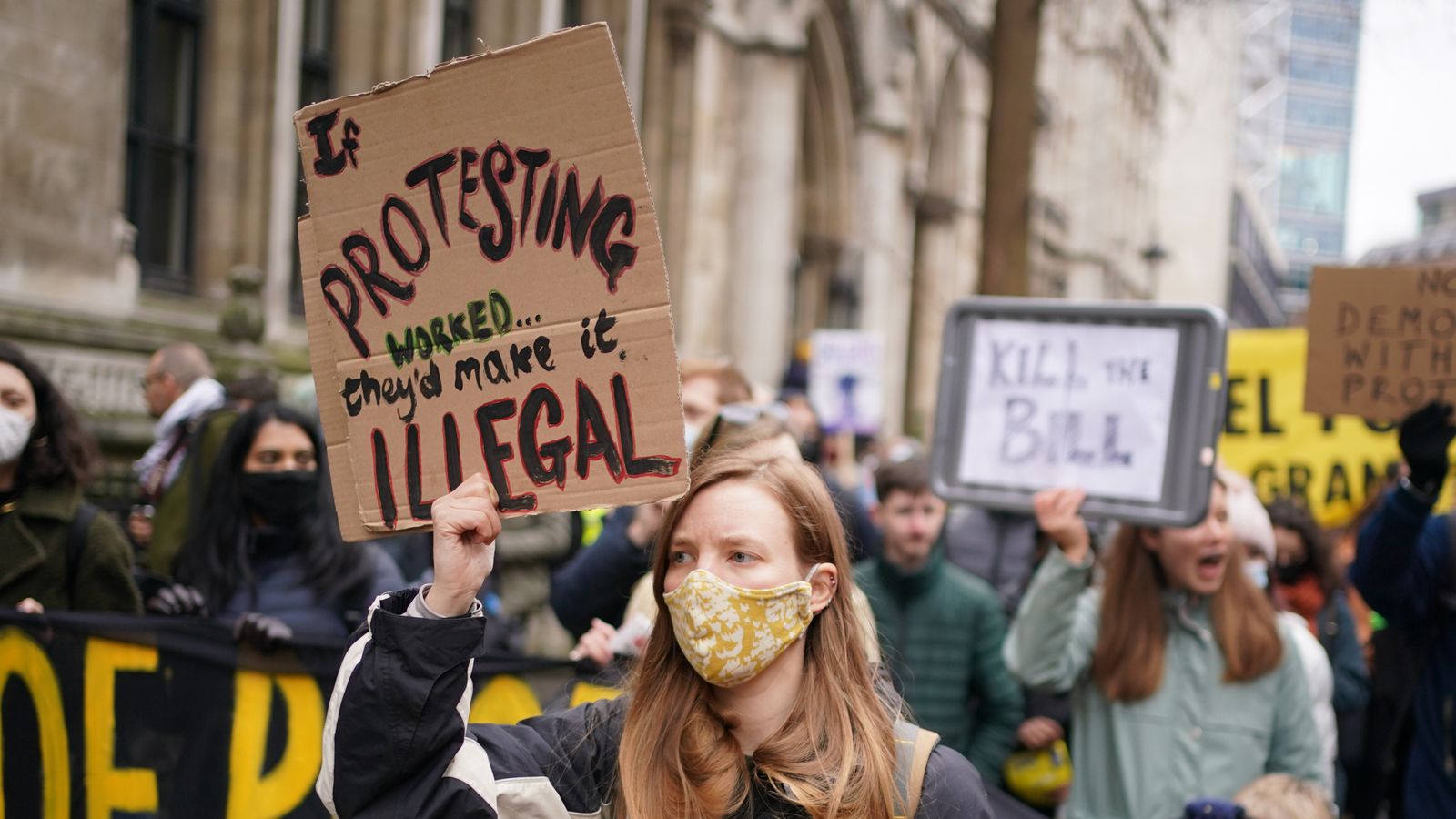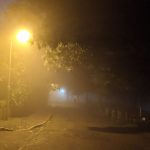Activists have demonstrated around the country to call on the House of Lords to reject a new policing bill which they describe as a “draconian crackdown” on the right to protest.
Demonstrations took place in numerous cities, including London, Bristol, Coventry, Newcastle, Liverpool. Manchester, Sheffield and Plymouth.
They came ahead of a crucial vote on the Police, Crime, Sentencing and Courts Bill on Monday.
Many hundreds joined the so-called “Kill the Bill” protest in London, marching from Holborn towards Parliament Square in Westminster carrying banners reading “defend the right to protest” and “we will not be silenced”.
The rally was joined by members of a broad range of groups, including social, racial, and environmental justice activists, who are demanding that the House of Lords squash the bill.
Speaking in Bristol to Sky News’ Dan Whitehead, a protester named Lacey said: “If the bill passes, ultimately my rights and everybody else’s in terms of speaking out would just be essentially taken away.
“I know that there’s petitions and things like that that exist, but unfortunately our government, or the people in power, just won’t listen.
Sir Keir Starmer says booting out Boris Johnson over partygate scandal ‘in national interest’
Downing Street parties: Number 10 doesn’t deny staff held ‘wine-time Fridays’ throughout COVID restrictions
COVID-19: Cases ‘plateauing’ in London, East and South East, with hospital admissions ‘slowing’, experts say
“Protesting is effective. It works,” she said, citing the suffragette movement which gave women the right to vote.
Sky News also spoke to Libby who said: “I think that there are different ways of protesting, sure, they can be petitions, but there’s not quite any visual that shows how many people care like boots on the ground all in one big group.”
Ben Hancock, 70, from London, told the PA news agency: “The measures are completely draconian really, basically rights will be taken away from anybody to protest. I mean, effectively we’re going to be reduced to a state similar to Russia.”
In its current form the new law would put protesters at risk of lengthy prison sentences and hefty fines for demonstrations that cause “serious annoyance”.
It would also restate the common law offence of public nuisance – something which the Law Commission had recommended in 2015 – but civil rights organisations including Liberty have warned the offence is “incredibly broad”.
Liberty said the wording of the offence “includes ‘any conduct which endangers the life, health, property or comfort of a section of the public’ or ‘that obstructs them in the exercise of rights belonging to the public’.
“Given that nearly all protests, arguably, ‘obstruct’ the public – indeed, it is the whole point of them – protestors may be charged under an offence that involves a sentence of up to 10 years imprisonment,” the organisation warned.
The bill would also expand the powers available to police to stop and search people, and introduce new laws against residing on land without authorisation with a vehicle which would effectively criminalise gypsy, Roma and traveller communities.
Amendments added to the bill by the government in the House of Lords in November make obstructing major transport works a criminal offence and would equip police with the power to ban named people from demonstrating.






















